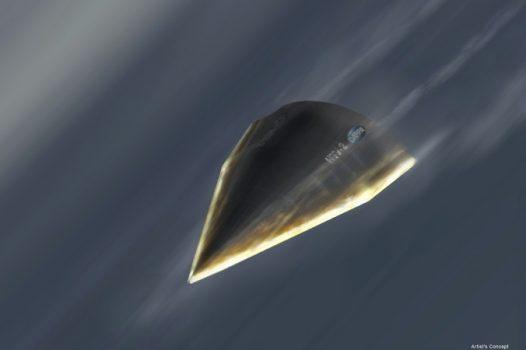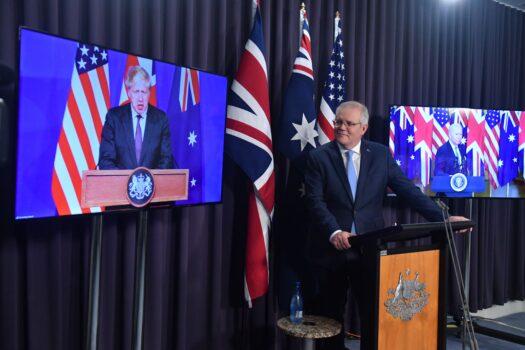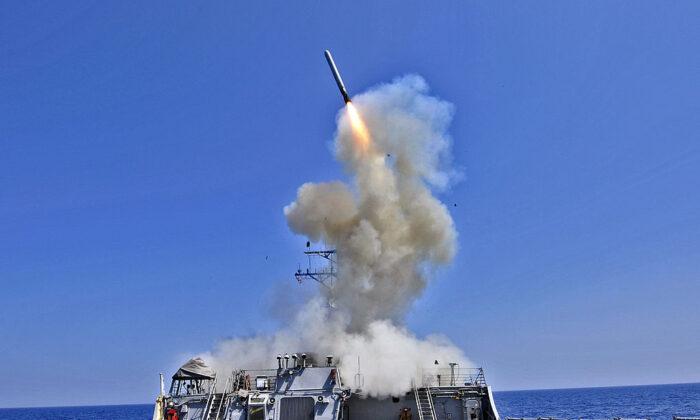Australia will acquire Tomahawk missiles and at least eight nuclear submarines from the United States as part of the freshly minted AUKUS security agreement inked with America and the United Kingdom.
The new Australia, United Kingdom, and United States (AUKUS) agreement will see Australia become one of the only countries in the world to operate nuclear-powered submarines, despite ratifying the non-nuclear proliferation treaty.
Prime Minister Scott Morrison has maintained that Australia would not be “seeking to acquire nuclear weapons or establish a civil nuclear capability.”
“We will continue to meet all our nuclear non-proliferation obligations,” according to a statement on Sept. 16.
The prime minister instead earmarked the acquisition of long-range strike capabilities, including Tomahawk missiles, which will accompany existing commitments including Joint Air-to-Surface Standoff Missiles that can hit targets from 900km away; Long-Range Anti-Ship Missiles (a type of automated missile); and continuing collaboration with the United States to develop hypersonic missiles (high-speed missiles that can bypass defence shields).

The move was announced on Sept. 16 by U.S. President Joe Biden, UK Prime Minister Boris Johnson, and Morrison during a joint virtual press conference from each of their capitals.
“This forever partnership that we have announced today is the single greatest initiative to achieve these goals since the ANZUS (Australia, New Zealand, and the United States) alliance itself,” Morrison told reporters in Canberra.
“It is the single largest step we have been able to take to advance our defence capabilities in this country, not just at this point but for the future,” he added.
The agreement will also spur cooperation across new and emerging areas including cyber, artificial intelligence, quantum technologies, and undersea capabilities.
“Contractual gates were build into the attack class project, necessarily. Decisions have to be made before you proceed through those gates, and so, as we were looking towards that next gate, we have decided not to enter through it as part of the Attack-class program but instead now to pursue this path which gives us a far greater capability to meet the strategic needs,” Morrison said, noting that $2.4 billion had been invested into the project.
A senior White House official noted that the sharing of U.S. nuclear propulsion technology and engagement with another nation at this level was “rare.”

“This technology is extremely sensitive. This is, frankly, an exception to our policy in many respects. I do not anticipate that this will be undertaken in other circumstances going forward. We view this as a one-off.”
Federal Greens member of Parliament Adam Bandt was critical of Australia’s decision, claiming “dangerous” nuclear submarines would place “floating Chernobyls in the heart of Australia’s cities.”
“It makes Australia less safe, increases the risk of conflict in our region [and] puts us in the firing line,” he wrote on Twitter on Sept. 16. “Greens will fight this tooth and nail.”
Liberal Senator Eric Abetz welcomed the announcement in a statement to The Epoch Times, “Our unique geography and our location in the Indo-Pacific requires dynamic naval capabilities, and nuclear submarines will serve that end very well.”






Friends Read Free